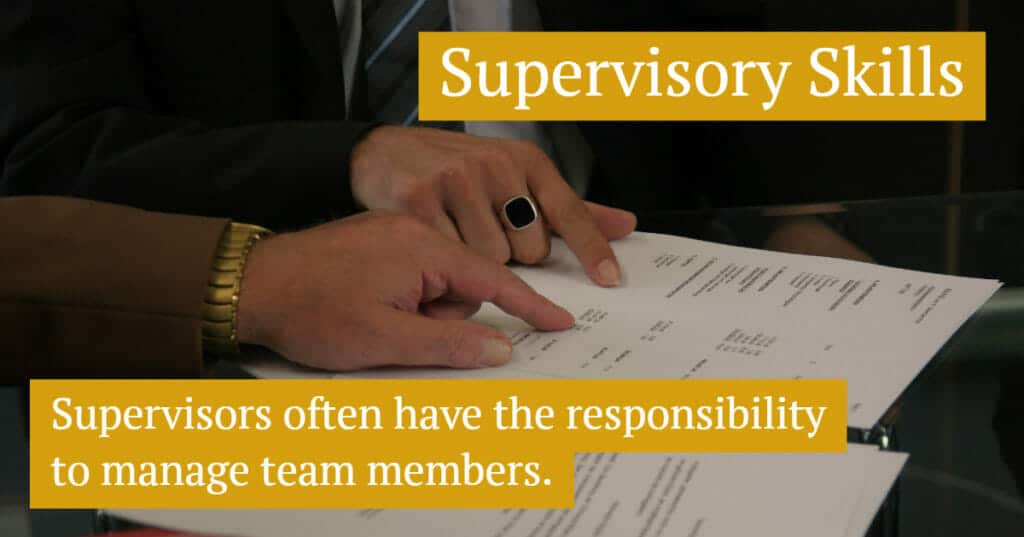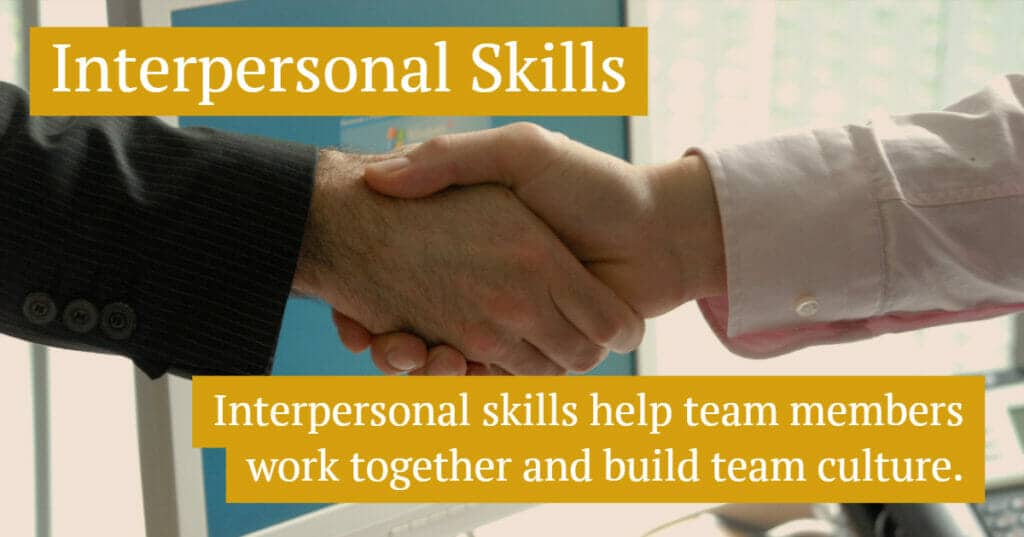Soft Skills: What are Soft Skills and Why are They Important?

What are soft skills? Why are soft skills important to a person’s success? If you don’t know the answers to these two questions, you are, quite likely, passing up higher levels of income and freedom. When I first started The Leader’s Institute ®, I used to begin my High Impact Leaders class by giving my definition of soft skills.
Basically, I’d explain that “hard skills” are the technical skills within your career or industry. For instance, if you are a doctor or nurse, the “hard skills” are your ability to assess the health of your patients and treat or cure their illnesses. “Soft skills,” however, allow you to effectively use those hard skills to do your job better. They help you become a highly adaptable person who will be seen as invaluable in the modern workplace.
Soft skills are commonly mistaken as a set of personal attributes that someone is simply born with, but in actuality, these skills can be learned by anyone. These skills include your ability to communicate effectively, manage your time, work with others, and build teamwork. In addition to good communication skills, they also include critical-thinking skills and your ability to navigate social situations.
Unfortunately, there are about as many definitions for the different types of soft-skills as there are people in the world. So, in this article series, I’m going to attempt to categorize these the most important soft skills into easy-to-follow groups. This will help you focus on the specific skills most important to your career and your industry. If you’re experiencing a lack of soft skills, use this list to assess yourself so you can get the competitive edge over your peers and become a great leader.
What are Soft Skills? General Categories of Skills
We have created four main categories of our essential soft skills. In each of these categories, there are dozens (maybe hundreds) of different examples of soft skills we think are most important. Understanding the different categories can be difficult, as everyone has a different interpretation here (this gets really confusing if you are not careful.). One organization may value strong work ethic, while another values strong communication skills.
One of the first things that our consultants will do when speaking with a new client is try to understand the new client’s definitions of certain terms. For instance, they may call us asking for help developing leadership skills. However, they may, in fact, really be looking for first-time-supervisor training. Below, I’ve given a summary of the different categories that we use. Don’t get hung up on the semantics, though. We have done our best to identify high-level categories as a starting point to explain each type of skill set.

Leadership skills are of the most important soft skills, and they’re respected at just about every level of a person’s career. A good leader can inspire others, create a vision for a new path, and develop the skills and confidence of people around you. Basically, leaders create paths where no path existed previously. The most common leadership skills examples are the following.
Leadership Skill Examples
- Innovation: Innovation in leadership involves the ability to think outside the box and come up with novel solutions to problems. Leaders who excel in innovation encourage a culture of curiosity and are not afraid to take calculated risks to achieve breakthroughs.
- Collaboration: Collaboration is about fostering a team environment where everyone’s ideas and contributions are valued. A leader skilled in collaboration ensures clear communication, promotes mutual respect, and pays close attention to how everyone’s diverse perspectives can help achieve common goals.
- Vision: Having a vision means setting a clear, strategic direction for the future. Visionary leaders are adept at painting a vivid picture of what the future could look like, rallying people around this shared dream, and laying down the steps to achieve it.
- Motivation: Motivation is about energizing and driving people towards achieving objectives. Leaders with strong motivational skills are capable of understanding and tapping into the different needs and desires of their team members, providing encouragement and rewards to boost morale and productivity.
- Creativity: Creativity in a leadership role is about bringing fresh and imaginative approaches to solve challenges. Leaders who are creative often approach problems in unconventional ways, encourage out-of-the-box thinking in their teams, and are not deterred by setbacks, seeing them as opportunities for learning.
- Inspiration: Inspirational leaders have the ability to uplift and energize those around them. They lead by example, display genuine passion and enthusiasm for their work, and have a knack for pulling team members out of their comfort zone. They often use public speaking to help achieve this.
For additional details and an explanation of each of these skills, go to Important Leadership Skills Executives Need to Know.

Management Skills
One of the first theories of management skills was created by a French engineer named Henri Fayol. His work was so well-read in his time, that the five (sometimes six) functions of management are still used today and include planning, organizing, coordinating, commanding, and controlling. Keep in mind that management skills will always be in high demand, so having work experience in management will help you be seen as an ideal candidate in the employment sector. Using this list, a few important management skill examples to accomplish these tasks are below.
Management Skill Examples
- Goal Setting and Achievement: This skill involves the ability to define clear, achievable objectives and develop strategies to reach them. Effective managers not only set realistic goals but also keep the team focused and motivated to accomplish these goals, tracking progress and making adjustments as needed. Goal setting and achieving is an essential skill in any leadership position and will go a long way in helping you achieve career success.
- Organizational Skills: Organizational skills in management mean creating order and structure in activities and processes. Managers with strong organizational skills are adept at resource allocation, streamlining operations, strategic thinking, and maintaining a clear overview of projects and tasks, ensuring that everything runs smoothly and efficiently.
- Time Management: Time management is crucial for efficient workflow and meeting deadlines. A skilled manager is proficient in prioritizing tasks, setting timeframes, and avoiding procrastination. They are also skilled in teaching their team effective time management techniques to enhance productivity.
- Delegation: Delegation is about entrusting tasks or responsibilities to team members. A good manager knows the strengths and weaknesses of their team and delegates tasks accordingly. Effective delegation involves providing the necessary resources and support while empowering employees to take ownership of their tasks.
- Problem Solving: Problem-solving skills involve the ability to identify issues, analyze underlying causes, and develop effective solutions. Managers skilled in problem-solving encourage a solutions-focused mindset in their teams, are open to innovative ideas, and can make sound decisions under pressure.
As you can see, the focus of these management skills is totally different from the leadership skills above. The difference between leadership skills and management skills is that the former is more visionary. Leaders create a new path. Managers make the path that we are on more efficient and effective.
For additional details and an explanation of each of these skills, go to Important Management Skills to Make the Workplace More Efficient.

Supervisory Skills
The role of a supervisor is similar to a manager but without as much authority. So, think of supervisory skills as a sub-set of managerial skills. Supervisors often have the responsibility to manage team members, but not necessarily the authority to make personnel changes. As a result, the supervisor is more concerned about the specific day-to-day activities of his or her team. A few sample supervisory skill examples are below.
Supervisory Skill Examples
- Organizational Skills: Organizational skills for a supervisor involve arranging and coordinating tasks efficiently to ensure smooth team operations. Supervisors with good organizational skills are adept at scheduling, resource allocation, and keeping the team aligned with the company’s objectives and deadlines.
- Time Management: Effective time management is crucial for supervisors to handle their workload and oversee their team’s tasks. They must be proficient in prioritizing tasks, setting realistic deadlines, and helping team members manage their time effectively to maintain productivity and meet targets.
- Communication: Communication skills are vital for supervisors to clearly convey expectations, provide feedback, and facilitate open dialogue within the team. Effective communication involves active listening, clear and concise expression of ideas, and the ability to adjust communication styles to suit different team members.
- People Skills: People skills are essential for supervisors to build strong relationships with their team members. This includes empathy, patience, and the ability to motivate and engage individuals. A supervisor with strong people skills can foster a positive work environment, resolve conflicts amicably, and boost team morale.
- Training Skills: Supervisors often take on the role of training and mentoring their team members. Good training skills involve the ability to assess individual learning needs, provide clear and effective instructions, and offer constructive feedback. This helps in enhancing the team’s overall skill set and preparing them for more complex tasks.
As you can see, there are a few similarities between the skills required for a supervisor and those for a manager. However, to be a quality manager, you have to develop more than just supervisory skills.
For additional details and an explanation of each of these skills, go to 5 Simple Firts-Time Supervisor Skills.

Interpersonal Skills
Interpersonal skills help team members work together more effectively and build more of a team culture. These skills are important at all levels of an organization. They are the skills that make all of the other skills work. For instance, if you have a great vision for your organization, but you have poor people skills, your team will be less likely to willingly follow you on this journey. If you have great time management skills but you aren’t great at conflict resolution, the conflicts can wreck your schedule. So, the skills below are critical to success. The higher your skill level, the more successful you will become!
Interpersonal Skill Examples
- People Skills: People skills, or social skills, involve the ability to interact effectively and harmoniously with others. This includes understanding and relating to people from diverse backgrounds, showing empathy, and building strong relationships in the workplace.
- Conflict Resolution: Conflict resolution skills are crucial for identifying, addressing, and resolving disputes in a constructive manner. This involves being able to understand different perspectives, mediate discussions, and maintain team cohesion and productivity.
- Listening Skills: Effective listening skills are about actively paying attention and understanding what others are saying. This involves not just hearing words, but also recognizing the emotions and intentions behind them. Good listeners can accurately receive and interpret messages, which is essential for effective communication and teamwork.
- Patience: Patience in interpersonal relationships means having the ability to remain calm and understanding, even in challenging situations. It involves tolerance and the ability to manage emotions, allowing for thoughtful responses rather than impulsive reactions, which is crucial in a team setting.
- Responsibility: Responsibility involves being reliable and accountable for one’s actions and decisions. It’s about taking ownership of tasks and roles, being dependable, and following through on commitments, which builds trust and credibility in a team.
- Dependability: Dependability is closely related to responsibility and refers to the quality of being trustworthy and reliable. Dependable individuals consistently meet deadlines, keep promises, and maintain consistency in their performance, making them invaluable members of any team.
For additional details and an explanation of each of these skills, go to Interpersonal Skill Definition and List.
Why are Soft Skills Important to Success?
Since the skills listed above are so valuable, people who develop these skills are more valuable to the marketplace. For instance, consider when a big company hires a new front-line employee. Most often they will narrow candidates down based on “hard skills.” They often do this based on transcripts or resumes. However, during the interview process, the employer will most likely begin to try to figure out which candidate is most dependable, responsible, and friendly. Which candidate can work well with others? Since most supervisors are promoted from within, managers often look for employees who have the best time management skills and organizational skills to promote.
My point is that when all other things are equal, people with the best soft-skills are often more successful than those who aren’t. So, if you are an employee who wants to be promoted to a supervisor, work on developing your supervisory skills. If you are a supervisor who wants to move into management, work on your managerial skills. If you are a manager who wants to move into leadership, develop your leadership skills. And if you want to start your own company… It might be a good idea to develop all of these skills.
The good news is that we can help. Our class, High Impact Leaders, is a step-by-step way to develop all of these skills. We start with the most important, the interpersonal skills. Then, we move to the supervisory skills. Next, we focus on those important managerial skills. Finally, we help you develop your next generation of leaders with leadership skills. For details, visit Leadership and Management Training page.
